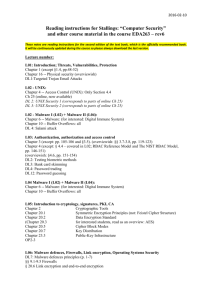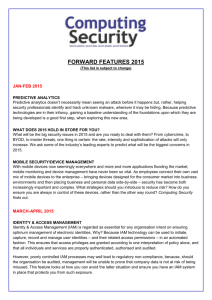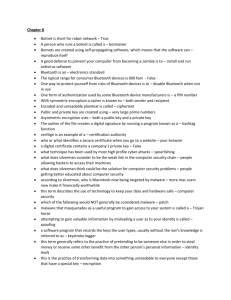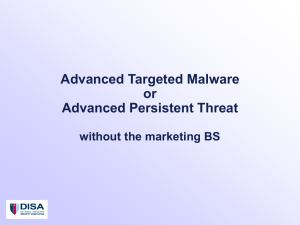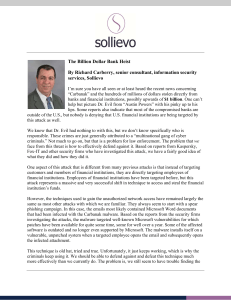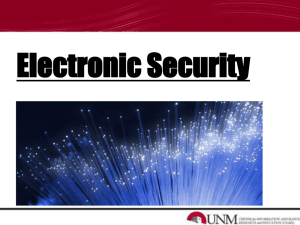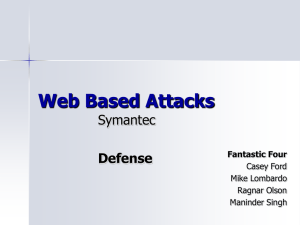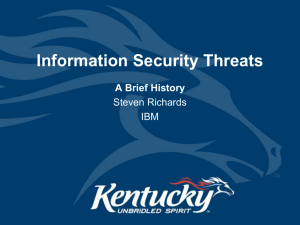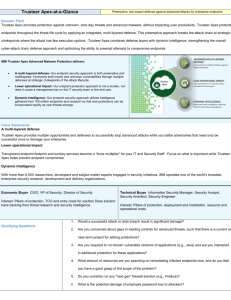Reading instructions for Stallings: “Computer Security”
advertisement
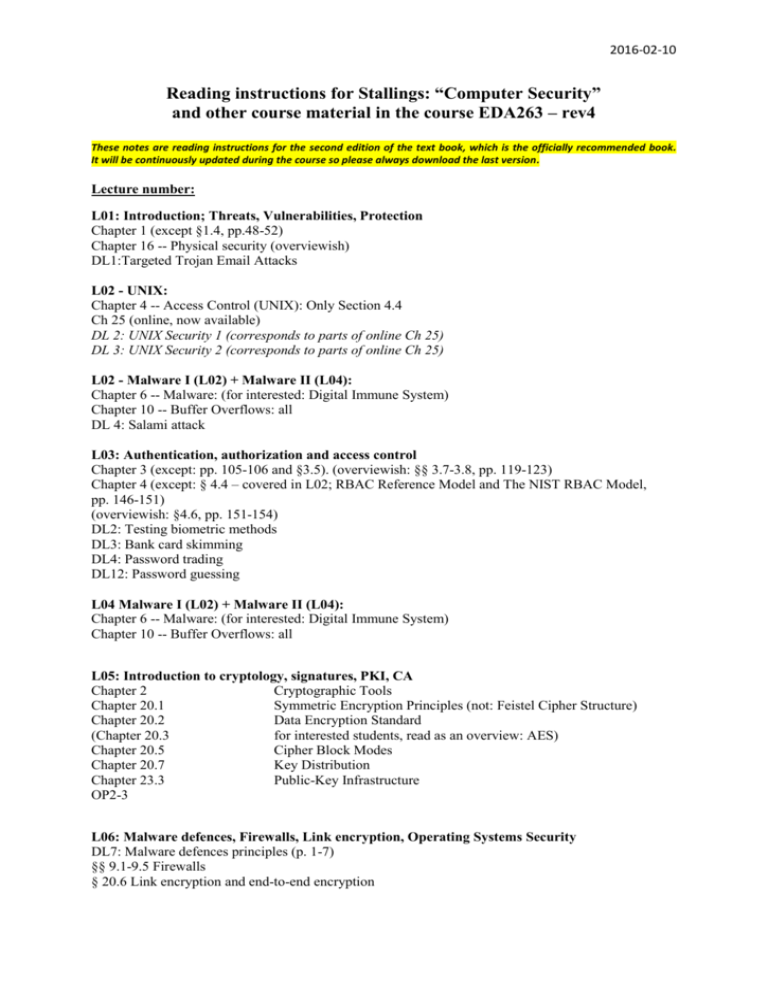
2016-02-10 Reading instructions for Stallings: “Computer Security” and other course material in the course EDA263 – rev4 These notes are reading instructions for the second edition of the text book, which is the officially recommended book. It will be continuously updated during the course so please always download the last version. Lecture number: L01: Introduction; Threats, Vulnerabilities, Protection Chapter 1 (except §1.4, pp.48-52) Chapter 16 -- Physical security (overviewish) DL1:Targeted Trojan Email Attacks L02 - UNIX: Chapter 4 -- Access Control (UNIX): Only Section 4.4 Ch 25 (online, now available) DL 2: UNIX Security 1 (corresponds to parts of online Ch 25) DL 3: UNIX Security 2 (corresponds to parts of online Ch 25) L02 - Malware I (L02) + Malware II (L04): Chapter 6 -- Malware: (for interested: Digital Immune System) Chapter 10 -- Buffer Overflows: all DL 4: Salami attack L03: Authentication, authorization and access control Chapter 3 (except: pp. 105-106 and §3.5). (overviewish: §§ 3.7-3.8, pp. 119-123) Chapter 4 (except: § 4.4 – covered in L02; RBAC Reference Model and The NIST RBAC Model, pp. 146-151) (overviewish: §4.6, pp. 151-154) DL2: Testing biometric methods DL3: Bank card skimming DL4: Password trading DL12: Password guessing L04 Malware I (L02) + Malware II (L04): Chapter 6 -- Malware: (for interested: Digital Immune System) Chapter 10 -- Buffer Overflows: all L05: Introduction to cryptology, signatures, PKI, CA Chapter 2 Cryptographic Tools Chapter 20.1 Symmetric Encryption Principles (not: Feistel Cipher Structure) Chapter 20.2 Data Encryption Standard (Chapter 20.3 for interested students, read as an overview: AES) Chapter 20.5 Cipher Block Modes Chapter 20.7 Key Distribution Chapter 23.3 Public-Key Infrastructure OP2-3 L06: Malware defences, Firewalls, Link encryption, Operating Systems Security DL7: Malware defences principles (p. 1-7) §§ 9.1-9.5 Firewalls § 20.6 Link encryption and end-to-end encryption 2016-02-10 § 13.3 Reference Monitors L07: NW attacks, Denial-of-Service Attacks, Kerberos L08: Intrusion Detection Systems, Intrusion Tolerance 2016-02-10 L08: An introduction to cryptology L09: Security Policies and Models L10: Security and Dependability modeling and Metrics L11: Security and Dependability metrics, Organisational issues, Human factors L12: Defensive Programming and Database Security L13: Common Criteria, spam, etc L14: Hard Disk Data Recovery and Erasure L15: Honeypots, Side-channel attacks, Ethics, Examination
